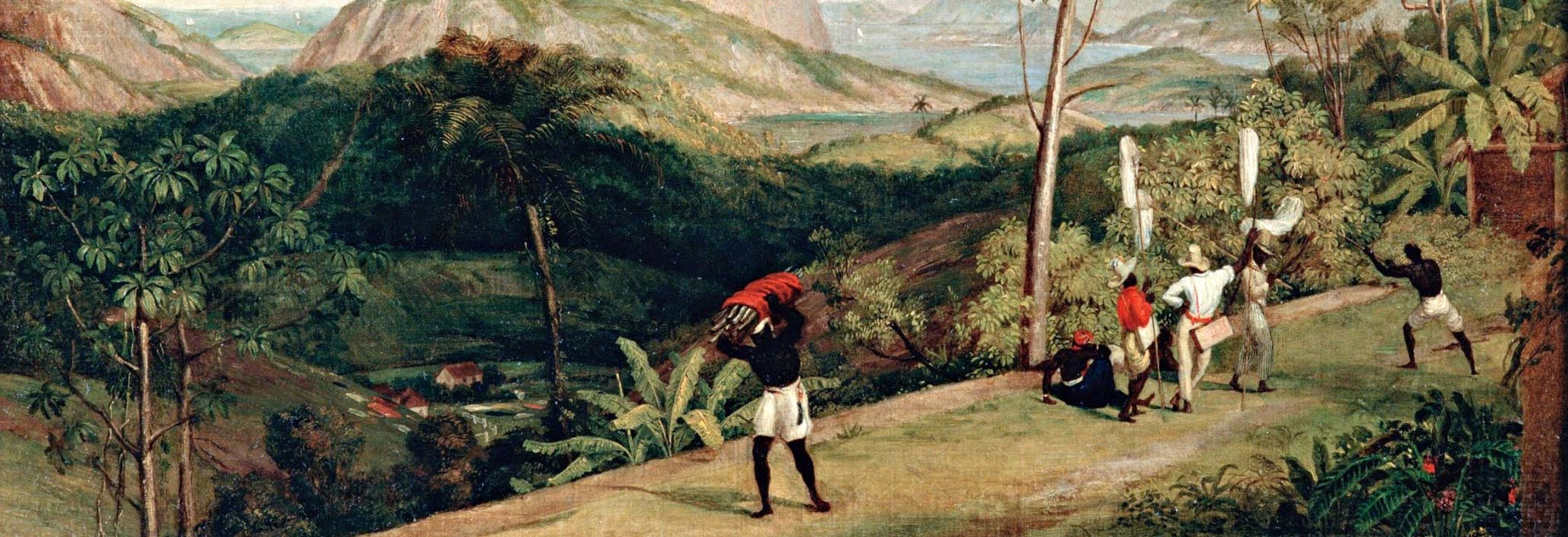Jan Rodrigues was merchant-sailor and trader in early Dutch Manhattan, believed to be the first non-indigenous resident of the island in present day New York.
Rodrigues was born in Spanish Santo Domingo (today’s Dominican Republic), probably the son of an Afro-Caribbean mother and a European father.
In 1613, Dutch captain Thijs Volchertz Mossel sailed the Jonge Tobias from the West Indies to Hudson's Bay, anchoring off Manhattan Island. There he left Jan Rodrigues to trade with Native Americans.
What happened thereafter is conveyed mainly through a series of lawsuits between Mossel and Dutch traders. These lawsuits provide almost all of what we know about Rodrigues. When captain Adrian Block returned to Holland after mapping Long Island Sound and trading with Native Americans, he was sued by Mossel for violating his exclusive trading rights. Key to the suit was the freedom status of Rodrigues as either Mossel’s slave or a free man acting independently.
Block asserted that Rodrigues was a free man, and not a servant or an employee as Mossel claimed. His presence as a free trader, Block insisted, was evidence that Mossel did not enjoy a trade monopoly on the island.
In April 1614, Mossel returned to North America. Rodrigues fired on Mossel’s new ship (the Nachtegael) at first sight. Mossel's crew chased the “black rascal” and briefly apprehended him. Though wounded, Rodrigues took a sword away from one of his pursuers and escaped. Later he found refuge on board another captain’s boat. The episode suggests both that Rodrigues was Manhattan's first non-Native American merchant and that he considered himself to be free. Mossel claimed that Rodrigues's actions proved that he was a renegade servant or employee, but in ruling against Mossel, the court found implicitly that Rodrigues was a free man.
Rodrigues’s trading post did well, and he was clearly in Manhattan for long stretches in the 1610s and 1620s. He may have still been in the colony when the Dutch West Indies Company (DWIC) arrived in Manhattan to pursue the fur trade in 1625. By some accounts, Rodrigues fathered children with one or more Native American women.
Like other Atlantic Creoles Rodrigues was among those navigators, traders, pirates, and fishermen who traversed the Atlantic as free men during the early colonial period. Their presence suggests the porous nature of sixteenth and seventeenth-century racial lines, which allowed people of African descent to be employed and even rise to positions of authority in a world suffused with African slavery.
Online Resources
National Park Service. “The Life of Jan Rodrigues” https://www.nps.gov/afbg/learn/historyculture/jan-rodrigues.htm
Niven, Steven. "Jan Rodrigues:The 1st Black Man to set Foot on the Island of Manhattan." The Root, February 1, 2016.https://www.theroot.com/jan-rodrigues-the-1st-black-man-to-set-foot-on-the-isl-1790854070
Bibliography
Berlin, Ira, Leslie M. Harris, eds.. Slavery in New York. New York: New Press; Distributed by W.W. Norton, 2005.
Burrows, Wallace, and Wallace, Mike. Gotham : A History of New York City to 1898. New York: Oxford University Press, 1999.
Hart, Simon. The Prehistory of the New Netherland Company: Amsterdam Notarial Records of the First Dutch Voyages to the Hudson. Amsterdam: City of Amsterdam Press, 1959.
Hodges, Graham Russell. Root & Branch: African Americans in New York and East Jersey, 1613-1863. John Hope Franklin Series in African American History and Culture. Chapel Hill: University of North Carolina Press, 1999.
Moore, Christopher Paul. "Rodrigues, Jan." African American National Biography, edited by Ed. Henry Louis Gates Jr.. , edited by and Evelyn Brooks Higginbotham. . Oxford African American Studies Center, http://www.oxfordaasc.com/article/opr/t0001/e3623 (accessed Tue Sep 10 14:07:53 EDT 2019).
Stevens-Acevedo, Anthony, Weterings, Álvarez Francés, Hart, Weterings, Tom, and Hart, Simon. Juan Rodriguez and the Beginnings of New York City. Dominican Research Monographs. New York, NY: CUNY Dominican Studies Institute, 2013.
Author
Christopher Paul Moore
Adapted by
James Almeida and Steven J. Niven
Contributing Institutions
Hutchins Center for African & African American Research, Harvard University, Cambridge, MA.
Oxford University Press (USA) African American Studies Center.





